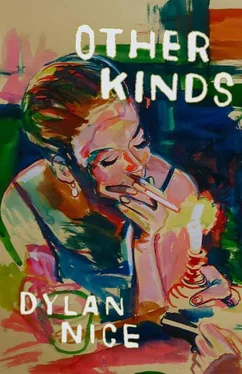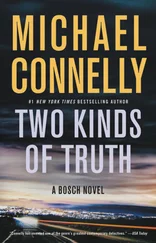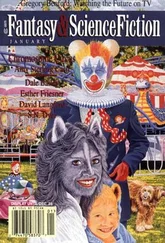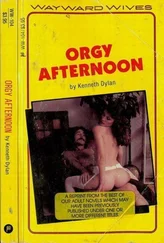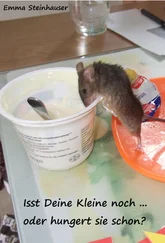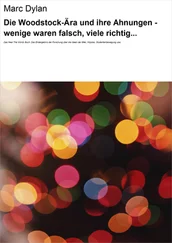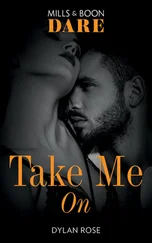She wanted me to take her in my big car with the old radio and the bench seat. This was her first summer away from the city and Lily took me to be an expert in awayness. The road to the corn turned to white gravel and opened clear of shade. It was June and the humidity had broken and the yellow light came thick like paint down to the stalks. I drove slowly over the hard-packed dust. Barns sat white and broad beside their houses. I watched her.
“You’re the perfect company for here,” she said, her arm resting across the open window. She wanted me to talk. She liked the way I drew out my words. I told her about where I was from, the way the water ran orange with iron, how it was deep with woods and how you learned to belong to it in an urgent way. The people there were barrel-chested and moved slowly through coal-heated houses and warehouse jobs and long morning drives to public schools. For a long time I still loved them, but the longer they left me alone, the more I realized I could never go back.
We pulled over at a crossroads and Lily took pictures of the sign.
“R Avenue and 191st Street,” she read and laughed.
She had me walk into the corn while she took pictures which later she’d wash out or brighten so that today already looked like something old and gone.
“Does the corn grow under the ground or out from the stalk?” Lily asked. She had put sunglasses on and was sitting on my hood with her legs beneath her.
“Depends on the farmer,” I said.
She gathered enough from my tone to smile. We drove on, listening to the crush of stone under the car. She was small and her white shorts were tight to her thighs. I imagined her younger: field trips to expensive city museums, cab rides with cash her mother gave her. The meter running while city rain ran down the window.
I drove with one hand high on the wheel while she ran her finger down the raised vein on the other. I stared at her skin, how there was something urgent about her even when she was still.
“This is better than what I’m used to,” I said.
“I know,” she said and smiled like she did know about it, like she knew about the shingle-sided house I left behind, the junked cars, the stinging smell of dog shit in the grass.
“I’m not sure what to do sometimes,” I said.
“About?”
“About all of this.”
“Don’t do anything,” she said. “Watch the road.”
There were no mountains here and the darkness came up from the ground instead of down from the sky. We drove farther and came to a long brick building, vines grown up the side of it, windows glossed over with dust. Trucks rusted in the shade of a maple tree and lightning bugs flashed in their shadow. I slowed to a stop.
“They must have been rich,” she said.
“Looks like a boarding house.”
Something in the early evening conspired. The sun was burning at eye level, flooding across the ground from the farthest piece of sky. Lily opened the door and walked out into the light and stopped. Her hair hung and shined behind her. I got out and pushed the door closed. She said nothing while I walked toward her. We kissed while the sun was warm and thick. The ivy blazed white and green up the side of the barn.
An hour passed and the good light was dying well.
“I’m not certain I can drive,” I said.
“You don’t need to be certain.”
We put down the windows, the big night air coming in. Lily leaned far over the center console and gripped the hair on the back of my head. Each tug hurt just long enough to notice. She writhed in her seat and I sat still. The hills curled steeply into one another until the road leveled at the edge of town and she quit pulling. It was full-on night. She moved her hands into her lap and a change came over her, as if she suddenly remembered something that made her life feel far away and impossible. She’d remembered this was a strange town and the person beside her was strange.
I dropped her off and watched as she walked through clipped grass toward the porch light.
Most times I called she didn’t answer, and when she did, she declined politely to go anywhere else. I went for drives to think about the shade of her hair or the way she smelled, to try to feel again what it felt like to be with her at that barn. You can’t remember the way a thing like that was, so you make it up new every time you remember. Late summer was dry and the flow from the spillway weakened more and more each time I came back. The light turned pale and winter, the leaves yellowed and flaked off the trees. Some nights, she called me when it was late to read a poem she was writing, one I sensed was about longing or disappointment.
I listened and waited for the moment when I felt her reading would slow. After long, I was just hearing her talk.
Another person in love would simply say I’m lonely. Come over. I sometimes smell you when you aren’t here.
I drank for nerves and was always too drunk by the time she hung up.
One warm day in September, a house behind mine caught fire. I saw the people in the street staring into the middle distance, their children pointing in the grave way children will announce danger.
I took the wooden stairs to the courtyard and into the crowd. The fire blazed hot and orange from the alley behind us, green maple leaves crackling in the flames. Lily answered on the third ring.
“The building behind mine is on fire,” I said.
“Hold on,” she said, “I want to come take pictures.”
She was waiting for the streetlight at a carless intersection when I recognized her by the length of her hair. She stood beside me and I tried to look like I made sense. We walked toward the fire. Cloth hoses crisscrossed the street and leaked streams of water while firemen knocked the windows out of the house. The smoke was heavy now and made it hard to see what was burning.
“It’s not a clean fire,” Lily said, lowering her camera for when it burned brighter.
She tapped a button and something inside the camera hummed. Whatever the light was doing on those leaves and that smoke now belonged to her. She took it. She turned, photographing the people now, their faces and night shirts lit orange with the firelight. Here were neighbors watching their neighborhood burn.
“You can see it’s vacant,” she said.
“Still,” I said.
Children sat in the grass at our feet and asked questions no one was comfortable answering. There was a moment when we could tell the fire was about to change; the smoke itself grew dense and began to burn. It was night now and I could feel the heat on my forehead. News crews were arriving, their red-laced antennae extending from the tops of the vans. The fire chief came out from between the row of trucks. Containment, he said, was top priority. The entire block was being evacuated.
“I’ll need a place to stay,” I said.
I was tired and thought about her sleeping against me but knew she wouldn’t allow it. I could see the spindles smoking now, the metal of the storm door burning, sense the size of the hands that had pushed that screen slack. The heat cooked an old chemical out of the neighboring roof and it caught flame fast. The firemen shouted, turning open red valves.
Lily’s house was painted wallpaper and scarred hardwood. She opened a curtainless window, lit a cigarette.
“Do I have to explain things to you?” she asked. She took pillows from a hallway linen closet and left me on the couch before quietly putting herself to bed. I couldn’t sleep. I wanted to hear my own voice drawl again, wanted to lie on the dirt that had made my bones.
I looked out the window and across the street at my building, backlit by floodlights, to be sure it wasn’t burning.
When I woke, it was still dark. I remembered where I was and left. The fire still smoldered and the police had crossed my building’s door with caution tape. There was nowhere to go but my car. The traffic lights were still blinking red as I started toward the corn. I wanted to see the size again, the way it made time feel longer. Once I was in it, I kept going. The blue of the sky lightened on the highway and turned to dawn by the start of the next state. My brother’s wife had bore a daughter back in the mountains where I was born. I needed to see a woman hold a child.
Читать дальше
